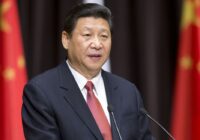The summit provides Indonesia with an opportunity to become a major global player.
In a meeting scheduled for March 6-7 in Indonesia, the Organization of Islamic Cooperation (OIC) will discuss concrete steps to solve the Palestinian crisis. A total of 57 member states aim to produce a Jakarta declaration. But will this year’s summit lead to something extraordinary to put an end to the Israeli-Palestinian conflict?
This is not an easy question to answer. However, as the host nation, Indonesia cannot be separated from the important initiatives of the summit and must be an active player.
Indonesian Foreign Minister Retno LP Marsudi said Jakarta’s willingness to host the 2016 OIC Summit stems from the demand of Saudi Arabia and Palestine. In an OIC ministerial meeting, Riyadh and Ramallah stated that Palestinian independence is an urgent issue, particularly after clashes in the West Bank and East Jerusalem since late 2015, and asked the Indonesian government to host the summit.
In the eyes of Indonesia, the hosting of the OIC Summit is not in response to the request of Saudi Arabia and Palestine. If traced back, the Palestinian issue was a campaign promise by Indonesian President Jokowi in 2014. Hence, through holding the conference, Jokowi has fulfilled his aim, especially to Indonesia’s Muslim communities.
By keeping his pledge, the president certainly deserves praise. He demonstrates his partiality to the aspirations of Indonesian Muslims. However, as an Indonesian, I hope that the fulfillment of the promise does not end with simply being the host of this year’s summit. There needs to be substantive results that can make Indonesia a key international player to solve the Palestinian crisis.
Indonesian Aims at the Summit
There are two points that must be raised by Jakarta in the summit.
First, the OIC should be a key player in the Israeli-Palestinian peace process. The main mediators of talks are the United States, the European Union, Russia and the United Nations (UN). Out of all these mediators, commonly known as the “Middle East Quartet,” the OIC or Indonesia has no voice. Even though the OIC is part of the UN, it is only a small part of the global body, and the United Nations itself is only one of four major players in the peace process.
In conflict resolution, a mediator plays an important role. But with the Israeli-Palestinian conflict, it is unlikely that the mediators in quartet have no interest whatsoever. Indeed, it is difficult to say if the four-player bloc would fully support the Palestinian cause. On that basis, the existence of the OIC in peace talks is crucial as a counterweight to these major global actors.
One may ask how the OIC can serve as a mediator when it does not recognize Israel as a state. The answer is simple: The US has never recognized Palestine as a state in the United Nations. If Washington is entitled to be a mediator in the peace process, the OIC—a bloc of 57 nations spanning across Africa, Asia, Europe and Latin America—should be treated in the same way.
Second, Indonesia must position itself as a major player in the OIC. Only by being a key actor can Jakarta promote the interest of its Muslim communities as well as being a representative in the Muslim world.
It cannot be denied that Indonesia still struggles with a range of domestic problems. However, this does not mean that the country cannot play an important role on the international stage. As a Muslim-majority nation, it is wouldn’t come as a surprise if the OIC became a cornerstone of Indonesian foreign policy.
Without a doubt, Indonesia has the credentials to be a key player in the OIC. Its status as a country with the largest Muslim population in the world is the indisputable fact. Another is that of Jakarta’s international activism in the past. The question, however, is whether these credentials alone will be enough to shape its image on the global stage.
The 2016 OIC Summit will be a test over whether Indonesia’s actions in upholding the interests of the international Muslim community are merely the fulfillment of political promises, or if they signal one of the country’s biggest achievements.
The views expressed in this article are the author’s own and do not necessarily reflect Fair Observer’s editorial policy.
Photo Credit: Asia Travel / Shutterstock.com
 We bring you perspectives from around the world. Help us to inform and educate. Your donation is tax-deductible. Join over 400 people to become a donor or you could choose to be a sponsor.
We bring you perspectives from around the world. Help us to inform and educate. Your donation is tax-deductible. Join over 400 people to become a donor or you could choose to be a sponsor.
Support Fair Observer
We rely on your support for our independence, diversity and quality.
For more than 10 years, Fair Observer has been free, fair and independent. No billionaire owns us, no advertisers control us. We are a reader-supported nonprofit. Unlike many other publications, we keep our content free for readers regardless of where they live or whether they can afford to pay. We have no paywalls and no ads.
In the post-truth era of fake news, echo chambers and filter bubbles, we publish a plurality of perspectives from around the world. Anyone can publish with us, but everyone goes through a rigorous editorial process. So, you get fact-checked, well-reasoned content instead of noise.
We publish 2,500+ voices from 90+ countries. We also conduct education and training programs
on subjects ranging from digital media and journalism to writing and critical thinking. This
doesn’t come cheap. Servers, editors, trainers and web developers cost
money.
Please consider supporting us on a regular basis as a recurring donor or a
sustaining member.
Will you support FO’s journalism?
We rely on your support for our independence, diversity and quality.






